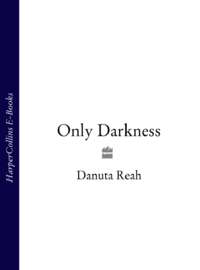
Полная версия
Night Angels
‘The phone’s a pay-as-you-go,’ Farnham said, anticipating her question. ‘We’re waiting to get some location information on it – at least find out where it’s been used. Nothing so far. We need an ID.’
She was about to ask how far they’d got with that, when he pushed a photograph across the table to her. She looked at it, looked away then looked more closely. ‘Christ.’
Farnham nodded. ‘He beat the shit out of her.’ Lynne looked at the photographs, at the woman’s destroyed face. The body was small and slender; the hair, which had been brushed back from the ruined face, hung in loose curls. Lynne tried to imagine the features that had been obliterated, and the faces of dead women from her past flickered in her mind. And more recently. Anonymous, dead women. The woman at Ravenscar, Katya, and now…she heard Farnham’s voice in her mind. The Sleeping Beauty.
Sheffield
Saturday evening found Roz at the entrance to the block containing Joanna’s flat. The building was low – three stories – and set back from the road. The front overlooked the park and the back looked on to a wooded hillside. It formed an enclave of rural seclusion in the centre of the city. Roz sometimes wondered how Joanna afforded to live here on an academic salary. She rang Joanna’s bell, and gave her name as the intercom crackled incomprehensibly at her. She straightened her shoulders and pushed the door open. She found Joanna’s parties a bit of an ordeal, and she wasn’t sure why she had been invited to this one. She’d queried this with Luke as she left work on Friday. ‘You’ll be the cabaret,’ he’d said, without looking up from his screen. ‘Take your fancy knickers.’
Thanks a bunch, Luke! She was at Joanna’s door now, and Joanna welcomed her with the social kiss she never used with Roz at other times. She took the wine that Roz had brought with a quick glance at the label. Bringing wine was probably a faux pas, Roz reflected as she and Joanna exchanged meaningless social pleasantries. Joanna was wearing a black dress of impeccable elegance and looked beautiful. Roz told her so, and for a moment a look of genuine pleasure appeared on her face. ‘We’re in here,’ she said, ushering Roz into the lounge. Roz envied Joanna this room with its huge windows that filled the whole of the far wall. She had spent an afternoon here before Christmas when the Arts Tower was closed, going through some spreadsheets in preparation for the finance meeting, watching the winter sunset turn the clouds grey and brilliant red, the sun an orange fire through the trees.
She felt the cloudy softness of the carpet under her feet as she crossed the room, nodding to one or two familiar faces as she followed Joanna to where a small group was admiring one of the paintings. Joanna performed the introductions quickly. There was Mark Bell who Roz knew by sight; an influential member of the grants committee, one of the new breed of industry-based academics. ‘And this is Petra, Mark’s wife,’ Joanna went on. ‘I don’t think you’ve met Jim, Jim Broadbent. Jim’s with Ashworth Lawrence.’ One of the biggest legal firms in South Yorkshire. Roz had recognized the name – another man with influence in both the legal and academic worlds. She found herself wondering if Joanna had any friends who were just that – friends. Presumably, Roz’s role tonight was to sell the Law and Language Group to these people whose influence stretched beyond the confines of the university.
‘And you may have met Sean Lewis,’ Joanna was saying. ‘He completed his doctorate at MIT. He’s with Martin Lomax’s team.’ The computer department. ‘Sean, this is Rosalind Bishop.’
Roz found herself looking into the appreciative eyes of a very young man. ‘I don’t think we’ve met,’ she said.
He smiled. ‘I’m sure we haven’t.’
Joanna pressed a glass of wine into her hand and Roz, tasting its almost astringent coolness, decided that her bottle of supermarket Chardonnay had certainly been a gaffe. She looked at Sean Lewis, wondering why Joanna had made a point of introducing them. ‘MIT,’ she said. ‘That’s an impressive alma mater.’ Massachusetts Institute of Technology. She wondered what someone with a doctorate from that institution was doing in Sheffield.
He seemed to pick up her unspoken question. ‘It’s where it’s all happening,’ he said, ‘but it’s a bit one-sided. Great if you’re a total geek – they’re all like, “Work, work.” I’m more, “Get a life.” There’s a lot of places I haven’t been yet. They don’t understand that over there.’ He shrugged.
Roz nodded, amused. She had spent most of her early working life focused on getting her toe-hold and pulling herself up the ladder. So had most of her contemporaries. It had seemed, then, possible to put other things on hold. She found Sean’s attitude refreshing.
They talked for a bit longer, then she did her duty and circulated, talking about the politics of the health trust with Jim Broadbent, and the importance of PR with someone she knew she knew, but whose name she couldn’t remember. Then the groups reformed and she relaxed for a moment as she listened to the swirl of chat around her; something about hospital funding on her left, something about the current state of theatre in Sheffield to her right, something about the plight of the universities and the role of research in modern technological societies from a group in front of her. Roz listened to them talking about the new Home Office regulations, about the hidebound administration of the university, before Joanna took them through to where food was laid out.
The dining room was a minimalist contrast to the soft comfort of the lounge, with a polished beech floor, and a table that gleamed with crystal and candlelight. Roz looked at the impressive buffet and wondered again where Joanna found the time to do all the things she did.
Joanna came towards her with the young man, Sean Lewis, in tow, and Roz wondered what she was up to. Whatever. It was just for an evening, and Sean was attractive and entertaining company. Their talk was impersonal, work-based, but there was a subtext that Roz was aware of inherent in the way he stood slightly closer than necessary, the way that when their eyes met he maintained the contact, the way he stood forming a barrier between Roz and the rest of the room. You’ve pulled, Bishop. Luke’s voice, in her mind. It made her want to smile, but she kept her face serious.
Sean seemed genuinely interested in her thoughts about the Law and Language Group, and talked quite knowledgeably about it. He understood her interest in the research side of the group’s work. ‘It’s the technology and the software every time,’ he said. ‘Take the grants, develop the prototypes and then get out there, market them yourself.’ He thought they were wasting their time with the criminal work. ‘Pissing about with tapes,’ he said dismissively.
Roz was suddenly alert. This young man was clearly a high-flier. His field was computing and software. He seemed well travelled, talking about America, Europe, the Far East. Attending one of Joanna’s parties was hardly the way he would choose to spend an evening. He looked as if he would be more at home in one of the notorious Sheffield clubs. She wondered what the attraction was.
She could see Joanna glancing across at them, a speculative gleam in her eye. She understood, now, why Joanna was so interested in Sean Lewis and why she wanted him and Roz to get on. If Joanna could pull it off, he would make a perfect replacement for Luke. It wasn’t as far-fetched as it seemed. Joanna had talked about enhancing the post, giving the software researcher control of the European grant work. He wanted to travel. He could still pursue his own interests – in fact, a link with a successful research group would be an asset. He smiled at her and helped himself to a piece of asparagus off her plate. Making a pact with the devil? She wondered if she should be using a long spoon.
5
Sheffield, Sunday
The phone woke Roz at seven. She swore and pulled her head under the blankets. Let the answering machine take it. She was due a lie-in. She hadn’t got back from Joanna’s until after two, and she’d been woken up again in the small hours by a gang of youths, fighting and shouting in the road outside. Now she just wanted to sleep. Who’d phone her at this time, anyway? Her mother? Not even Paula would phone at this time on a Sunday. Then the voice on the machine penetrated, and she sat up, grabbing for the phone. ‘…your lazy arse out of bed, Bishop…’
It was the old Luke, the friend who had never had any compunction about rousting her out of bed in pursuit of some enterprise that had caught his fancy. ‘It’s the middle of the night, Luke! For Christ’s sake!’ Then she remembered Friday. ‘What’s wrong?’
‘I’m round at Gemma’s,’ he said. ‘There’s…’ Suddenly his voice sounded uncertain, the new Luke, slightly wary, slightly withdrawn. ‘I’m not quite sure. Maybe I shouldn’t have called you.’
‘Oh, come on, Luke. I’m really going to go back to sleep now, aren’t I? What’s wrong? Is Gemma ill? Is that why she didn’t come in yesterday?’
‘Gemma’s not back,’ he said, after a pause.
‘Luke…’ She felt an uneasy sensation in her stomach. ‘Has she been in touch? Anything?’
‘Nothing. But…’ Again the un-Luke-like uncertainty.
‘Don’t you think we should call someone – the hospital? Maybe she had an accident.’ Or was she being melodramatic?
‘I did that bit yesterday. I told you that car shit didn’t make sense. There wasn’t anything. But then there wouldn’t be.’
‘Why? What did they say?’ There must be something, or he wouldn’t have phoned. ‘I’ll come round, shall I? To Gemma’s?’
‘I don’t know…’ That uncertainty again. She tried to remember any time, in the year she had known him, when Luke had asked her for help.
‘I’m coming round,’ she said.
There was a moment’s silence. ‘OK. See what you think.’ He hung up.
Roz looked out of the window, trying to assess the weather. She didn’t bother with curtains. Her bedroom looked out on to the derelict house, the oriel window visible from where she was lying. She rolled out of bed on to the floor. It was the getting-up technique she’d adopted in her teens, when the act of getting out of bed had seemed impossible to achieve. Her fatigue had retreated, but she knew she would feel it later. Getting old…The shower pulled her further awake. She put on jeans and a warm jumper, stuck a croissant under the grill and switched the kettle on. Fifteen minutes later, the half-eaten croissant in her hand, she was reversing the car out of her gate.
Gemma rented a flat in Hillsborough. Roz had picked her up there once or twice, but had never been inside, she realized, as she pulled up outside the small terrace, behind Luke’s bike, a Vincent Black Shadow that he devoted more time and care to than he devoted to himself. ‘Brings out the geek in me,’ he’d admitted once to Roz. He must have been looking out for her, because he opened the door as she came through the gate.
She followed him into the house. The entrance hall and stairway were common territory, and had the dark, uncared-for look that areas of transit often have. Gemma’s flat was on the ground floor, her door to the left of the entry. Roz looked round as she went in. It was – presumably – pretty much like any of the furnished flats on offer in an area that had a large transient population. Gemma had draped the chairs with pale throws, and painted the walls a light, neutral colour, as though she had tried to make the room non-intrusive, a background to her presence. Here and there were patches of colour – the green of a plant, a peacock blue table lamp, a brilliant tapestry on one wall, cushions embroidered in scarlet. Roz was drawn to the tapestry. It seemed to glow with life in the stark room. She looked more closely, admiring the brilliant colours and the intricate weaving of the threads.
Luke came up behind her. ‘Gemma got that when she was in Dudinka,’ he said. Gemma had spent three years in Russia, mostly at the Siberian university of Novosibirsk when she was studying for her PhD. ‘They gave it to her when she left. She’s going to go back there, when her research money runs out here.’ Roz was surprised. She’d thought that Gemma planned an academic career in Britain – or America.
Luke turned away from the tapestry. ‘Through here,’ he said. He led her through a small kitchen – more of a lobby than a kitchen – to the bedroom, which was at the back of the house. It was smaller than the front room, and was sparsely furnished with a bed, a small chest of drawers, and an empty hanging rail by the chimney breast. Under the window was Gemma’s desk, with her computer. The screensaver wove intricate patterns in ever-changing colours. Luke went over to it. ‘Look,’ he said. He clicked the mouse to open the documents window, and then jerked his head to bring Roz over. She looked at the screen. The documents window was open, but there was nothing there, no files or folders, just empty space: 0 objects. 0 bytes.
Roz looked at it, and looked at Luke. He shrugged a shoulder. ‘Last time I saw this, Tuesday night, that would have been, she had loads of stuff on here,’ he said.
‘Maybe she wiped it – for space,’ Roz said. ‘Maybe it’s all saved on disks.’
Luke pulled open the desk drawer. ‘She keeps her back-up stuff here,’ he said. The drawer was empty. ‘Anyway, Gem keeps all her stuff on her hard disk. She says it’s easier to keep track of. And she has back-up disks for everything.’ He folded his arms and looked at her, leaning against the desk, waiting.
Roz wondered what he wanted her to do. She wondered what she should do. Gemma had gone to Manchester on Thursday and attended a meeting. She had definitely been there – Joanna had checked on Friday. She was due back on Thursday evening. Luke had said that he expected her to phone – or half expected her to phone. She was certainly expected in the department on Friday morning. The meeting had been the main focus of Joanna’s attention for the past month. Gemma had sent an e-mail with a lame excuse. She hadn’t come back, and she had apparently wiped her document files from her hard disk before she went. Luke was still watching her from by the desk, waiting to see where her thoughts took her. ‘The police?’ she said.
‘I did that as well,’ he said. ‘Yesterday.’
‘And?’ It was like pulling teeth.
‘They weren’t that interested. They took details, but they didn’t see any reason to worry. Gemma does go off sometimes, weekends. Said to leave it until Monday. They thought I was overreacting, thought we must have had a row. Lovers’ tiff.’ He said it lightly enough, and she wondered why he was worried, if Gemma was in the habit of taking unplanned trips. There didn’t seem much point in asking him. He wouldn’t talk to her these days. ‘I just thought there was something wrong. Thing is, I hadn’t been round here then.’
‘What do you mean?’
He jerked his head impatiently. ‘Just look round you, Roz.’
She looked, and the implications of the empty hanging rail hit her. She went over to the chest and opened the drawers. They were empty. ‘All her stuff’s gone,’ she said. That meant that wherever Gemma had gone, she’d planned it, but the sense of unease stayed with her.
‘First prize for observation, Bishop.’ Luke had turned back to the computer and was moving the cursor across the screen.
‘Look, did you two have any kind of, you know…?’
‘Any kind of what, Roz?’
‘Any kind of row, or disagreement or something that would have upset her. You know what I mean, Luke.’
His expression didn’t change. ‘If I knew of a reason for her being away, I wouldn’t be looking.’
So that’s a ‘no’, then. ‘If Gemma deleted those files, should you be planning a raid on them?’ she said. She was beginning to understand that Gemma must have personal reasons for going away and that Luke knew more than he was telling her. She wasn’t prepared to be the patsy in whatever complicated game he and Gemma were playing. He smiled at her and waited. You haven’t thought it through, Bishop. ‘You’ve already looked,’ she said.
‘It’s no problem getting deleted files back,’ he said. ‘But…someone’s taken a bit of trouble here – all I’m getting is gibberish.’
So Gemma had done more that just issue a delete instruction. ‘Can’t you get them back at all?’
‘If I…I don’t know. Probably not. Not from something like this.’ He frowned, looking into space, thinking. ‘I don’t think Gemma could have done it. She could have wiped her hard disk, no problem. She knows how to do that…’ Roz reflected that she herself had managed to achieve just that, once, without either meaning to or knowing exactly what she’d done. ‘But she’d have needed a bit more for this.’
Roz thought about it. She wondered how she would tackle the problem if she wanted to take stuff off her hard disk in such a way that it was permanently removed. You couldn’t work in her field without knowing how easily such files could be retrieved. If she wanted to do it, she’d probably ask Luke. But if she didn’t want Luke to know…She thought she might have been able to come up with some kind of a solution. She just wouldn’t be 100 per cent confident that the files would be permanently deleted. And that, presumably, wouldn’t be too difficult to find out. ‘Gemma could have done it,’ she said.
Luke shrugged. He clearly thought she was wrong. He shut the machine down and stood up. ‘I’m going into the department,’ he said. ‘I’m going to look on her PC there.’
The Arts Tower was quiet on a Sunday. Students were using the library, and people were riding the paternoster – a university never really closes down – but the milling crowds of weekdays, of lecture and seminar days, weren’t there. They rode up in the paternoster in silence. N floor was deserted, the lights out, the corridors dim and empty. Luke led the way to Gemma’s room and used his master key to open it. Roz looked round. Everything was as neat and ordered as it had been on Friday. She remembered being in here, looking for Gemma’s draft report. She realized the significance of that as Luke switched the computer on, and felt a relief she couldn’t quite account for. ‘It’s OK,’ she said. ‘I’d forgotten. I looked up one of Gemma’s files on Friday. There was a report she had to get in. Everything’s there. Or at least the files I was looking for were there. I…’ Her voice trailed off as she looked over Luke’s shoulder. The computer was flashing a message at them, white letters on a black screen: error, error, error.
Luke looked at her. ‘It may have been here on Friday,’ he said, ‘but it isn’t now. It’s been wiped.’
Roz pushed her hair back from her face and shook her head. ‘I can’t think of anywhere else to look,’ she said. Whoever had wiped Gemma’s machine, they’d done a thorough job. The painstaking removal of files from her home computer would have taken a bit of time. Here, the hard disk had been reformatted. Everything was gone.
Roz and Luke had gone through the desk and the filing cabinets in Gemma’s room, checked the shelves, the window sill, the pockets of the lab coat that hung on the back of the door. Roz wondered why it was there. She’d never seen Gemma wear it. They were looking for Gemma’s back-up disks. Luke straightened up from the filing cabinet, and for a moment, his face was unguarded. He looked anxious, confused, and there were lines of tension around his mouth and eyes. He saw she was watching him, and made an attempt at a smile. ‘What’s the point in wiping the computer and leaving the back-ups?’ he said. ‘They’re not here.’
‘Whoever did it might not have known…’ Roz was still hoping the back-up disks that Gemma should have kept would turn up. Maybe they’d missed something. She turned back to the desk.
‘They aren’t here, Roz. Stop wasting time.’ He shoved his hands into the pockets of his jeans, and looked round the room, his face angry now. ‘I told her we needed an automatic back-up system.’
‘Who?’ Roz pushed the desk drawer shut. He was right. There was nothing here. They’d looked everywhere. She pushed her glasses back up her nose, then, irritated by them, she took them off.
‘Grey. I told Grey.’ He ran his hand through his hair and moved restlessly round the small room. Roz pulled open the top drawer of the filing cabinet. She didn’t want to admit he was right.
‘You think Gemma did this? Came back yesterday and wiped everything off her machine?’
He reached past her and slammed the filing cabinet drawer shut. ‘How the fuck should I know?’
The anger in his tone froze her. She knew that Luke could be volatile, but she’d never seen that sudden rage in him before. She stepped back, moving away from the filing cabinet, wanting to put some distance between them. She tried another question, tried to keep her voice normal. ‘Why the blitz job on the hard disk here? Why did…whoever…wipe the whole disk, and just do the files on the other machine?’
He didn’t look at her, kept his hand on the filing cabinet. ‘I don’t know, Roz.’ His voice was tightly controlled. ‘Work it out for yourself.’
She looked at his rigid stance. Suddenly, it was like stepping back two years and seeing Nathan’s confusion transform into fury. Then, the only thing to do had been to get out of the way, fast. Until the night she hadn’t made it. She had been woken up by the sound of him moving round the house, the confused stumbling, and had got up as she had done before. And he had been there at the top of the stairs, his face twisted with anger and panic. She could still see his face, his arm drawn back. Then his fist had slammed into the side of her head, her hand had grabbed at the banister rail in a futile attempt to save herself in the frozen moment of her fall before the pain and the fear hit.
She couldn’t deal with Luke like this. ‘I’ll be in my room,’ she said, after a moment.
He didn’t look at her. ‘OK.’
She walked along the empty corridor past the stairwell, her footsteps echoing on the lino. A security light was a red glow on the ceiling, and light from the lobby cast a faint gleam at the end of the corridor. Roz went towards her room, trying to think the situation through. Her mind was dividing down two paths: one, the main one, was concern for Gemma, a feeling of queasy uncertainty that told her something was wrong. Luke said he’d been in touch with the police, and that they hadn’t been concerned, but that was before the discovery of the missing files. Or would the police say that showed Gemma had meant to leave, that she had wiped all her files because…because what? Because she had something to hide?
That was the second strand of Roz’s concern. If Gemma had gone deliberately, the implications for the group could be serious. Roz closed the door of her room, and leant against it. The silence closed round her. She needed some time to think, and, she realized, she needed to contact Joanna. Joanna had to know. She dialled Joanna’s number, but got the answering service. She hung up. She’d better plan what she was going to say. She pushed a pile of papers out of the way to reach her notepad and a pen. The papers were her Monday’s to-do pile. The various tasks snagged her mind, and she leafed through the stuff as she tried to work out what, exactly, to say to Joanna.
That reminded her about the draft report for DI Jordan. Gemma needed to complete it and send it off. But Gemma wouldn’t be there. Suddenly, she was sure of that. Whatever had happened, Gemma would not be back soon, maybe not at all. Roz would have to check that report, phone the rather brusque DI Jordan and explain why it was being delayed for another day. She remembered Joanna’s ebullience on Friday. She dreaded telling her.
A disk that had been concealed in the pile of papers slipped out and fell to the floor. She frowned as she picked it up. She was very careful not to leave disks lying around, careful to keep them filed and classified where they could be found as soon as they were wanted. She must have been distracted on Friday. She picked it up to see what it was. No label. That was odd. She never, never, put anything on a disk without labelling it. It must be someone else’s, but who would leave this in her office?





